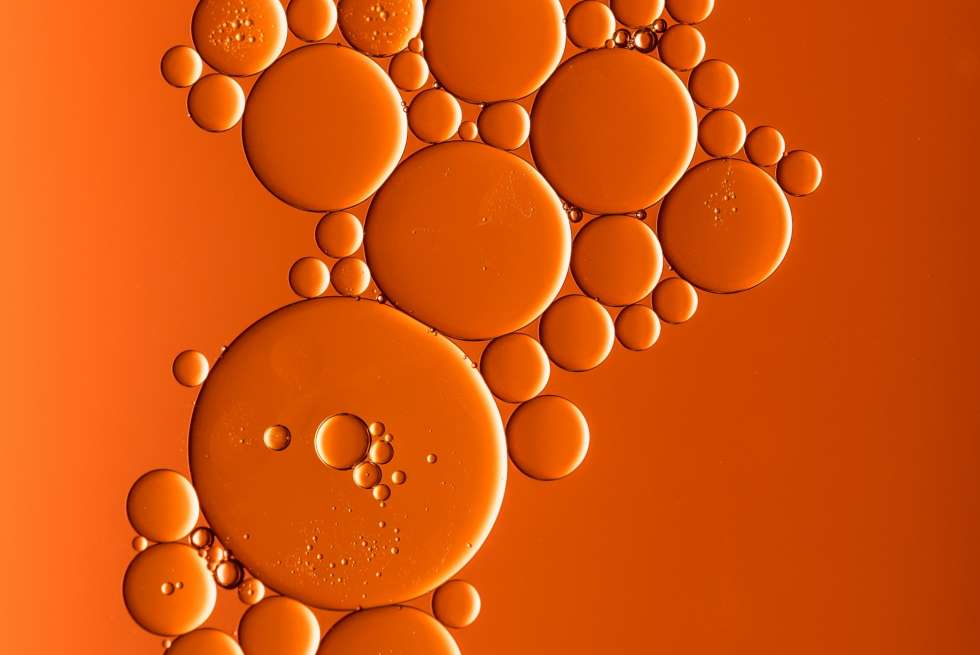Fat: Deviation
From the Series: Fat
From the Series: Fat

A common (and cheap) cooking fat in India is vanaspati, or vegetable shortening, often made from palm oil. A common (and cheap) way to make news is for a story about problems with vanaspati to surface. This happens frequently on both small and large scales. For example, in 2009, an advocacy organization, the Centre for Science and Environment (CSE), tested multiple brands of vanaspati for levels of trans-fats. Many of the brands tested had trans-fat levels as high as 23% by volume (European standards are set at 2%) (Navbharat Times 2009). At the time, the Indian government required companies to acknowledge the presence of trans-fats, but not to specify their exact levels (this has since changed). The question of the state was "are trans-fats in fat?" rather than the question posed by CSE, which was "how much of this fat is in that fat?"
The kinds of tests CSE conducts and their publicity concern Indians across social classes, but adulteration and mislabeling disproportionately affect the poor. Cheaper forms of cooking oil come in the form of "loose" oil, meaning oil available from a large vat rather than pre-packaged on the shelf. A Mumbai-based NGO tested many of these loose forms of oil in 2014, and found in its sample that most oils labeled as "pure" (e.g., 100% coconut or 100% sesame) in fact contained large proportions of palmolein (Lotlikar 2014). An unwanted fat was in the desired fat. This is a story about the fat's effects through unexpected forms and concentrations, rather than a story about people's miseducation around health.
In previous entries in this series, Jessica Hardin writes that different fats "are different material substances, and evoke different morals." This is part of her response to Susan Greenhalgh's suggestion that "The war on fat…raises critical questions about governance, citizenship, science, and morality." I agree with both of these statements, but would also point out that "substance" is not always doing its work as the scale of the composite. Discrete components, aligned and misaligned, can make a difference. Rearrangements add up to differences in life (for it is thought that trans-fats shorten life) and differences in politics (for finding palm oil in what is not supposed to be palm oil triggers concerns about corruption.)
Perhaps the detractors of studying fat that Greenhalgh encountered avoid thinking about fat as an anthropological object because their mode of recognition has winnowed down too much to the scale of composite, thus missing the work of what it takes to make a substance cohere. Substances have time horizons. They take time to build up and break down. Arguments over genetically-modified foods or worries about BPAs evoke the substitutions and elemental drift of substances. Fat moves, too. It moves in the body, as illustrated by obsessions over how plump or lean body parts may be. It also shifts molecularly. It may move as a result of human action, but the human in question is not always the eater. It may be the shopkeeper, or the shopkeeper's assistant, or any other number of intermediary humans and tools working with fat.
In his “Compositionist Manifesto,” Bruno Latour pursues how things are “put together while retaining their heterogeneity” (2010, 473–474). “For a compositionist," he writes, "nothing is beyond dispute. And yet, closure has to be achieved. But it is achieved only by the slow process of composition and compromise, not by the revelation of the world of beyond” (478). I find this call for attention to heterogeneity compelling. But the assumption that compromise could be achieved does not necessarily apply to the adulteration incidents described above. Fat will continue to be rearranged, without compromise. If there is any compromise, it is in the transitive form of the verb, not the intransitive form that Latour relies on. In Mumbai, some people are compromising the oils that other people expect to be pure. At stake, then, is the matter of what happens when fat is fat, but not the fat that one expects. To make a fat into a scandal requires rearrangements of lipids and laws. And through attention to fat's rearrangements, one can then better address its potential to transgress.
Latour, Bruno. 2010. “An Attempt at a “Compositionist Manifesto.”” New Literary History 41: 471–490.
Lotlikar, Pranali. “Mumbai based NGO exposes edible oil racket.” DNA India, July 22, 2014. http://www.dnaindia.com/mumbai/report-mumbai-based-ngo-exposes-edible-oil-racket-2004159
Navbharat Times. “Sehat ka dushman hai vanaspati ghee [Vanaspati ghee is the enemy of health.]” February 5, 2009.